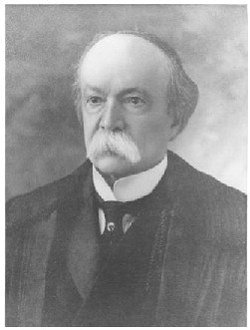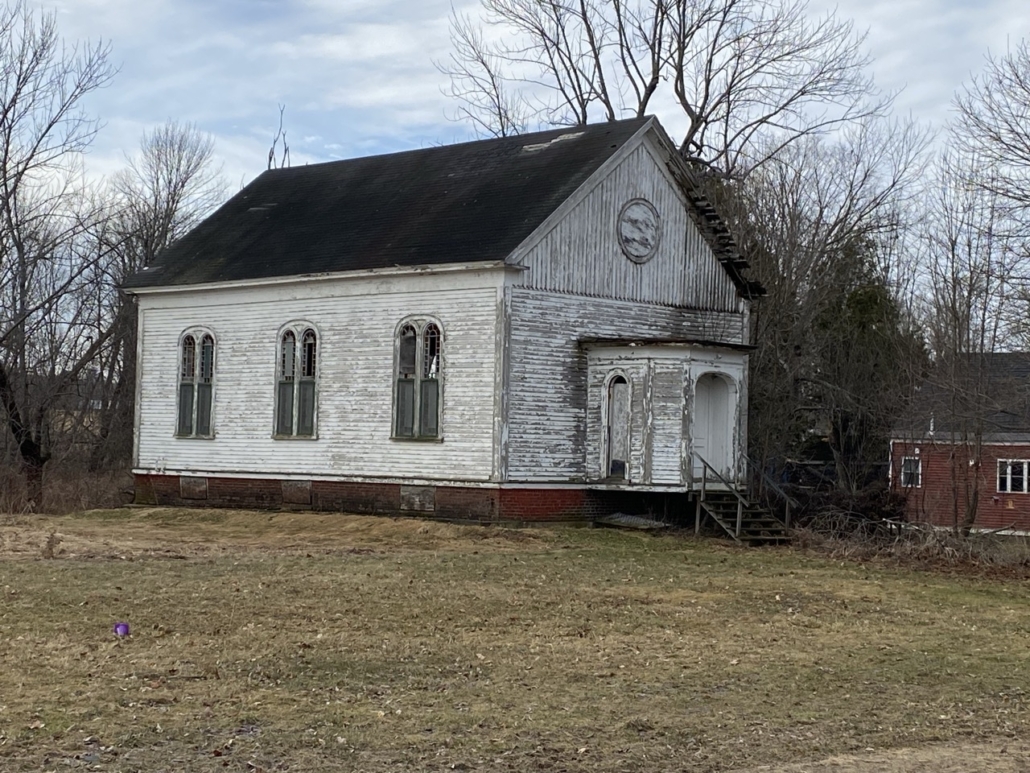Up and down the Kennebec Valley: Education in 18th & 19th centuries
 by Mary Grow
by Mary Grow
Introduction and Massachusetts law
One of the many questions your writer has not yet answered – and may never – is why, in the 1700s, people left comparatively comfortable homes in Massachusetts and similar places to come to the Kennebec Valley, on the Massachusetts frontier.
They got free or low-cost land, to be sure. But they had to turn a forest into a farm, and they had to bring with them or recreate everything they needed for daily living.
Their needs included, obviously, material things: food they had to kill or grow; water and things in which to carry, heat and store it; shelter; clothing; tools, household utensils and furniture; perhaps a horse, a cow, some chickens and shelter and food for them; and many more necessities and conveniences.
Many of the (few) surviving early diaries and letters describe the lack of such basic goods. James North commented in his well-researched history of Augusta, published in 1870, “It is difficult to conceive at this day how the settlers at this early period provided for their wants, which must have been few and scantily supplied.”
In the 1760s, he wrote, most families lived in log houses. There were no roads; people traveled on foot or horseback following marked trails through the woods.
Alice Hammond, in her 1992 Sidney history, painted a slightly different picture. She said by 1765, enough water-powered mills were operating on brooks running into the Kennebec so that some trails had been widened “to allow pack horses and even carts and sleds in season.” Nonetheless, she mentioned a man reported to have carried “a sack of corn on his back to a grist mill nine miles from his home.”
North said Samuel and William Howard, the first traders at the Cushnoc trading post (later the site of Fort Western, on the east bank of the Kennebec River in Augusta), “rendered them [the settlers] valuable services in exchanging their few commodities, which consisted of the products of the waters and the forest, for the necessaries of life.”
The settlers offered wood (including shingles), fish, moose hides and furs. The Howards provided “pork, corn, flour, shoes,” molasses, a spelling book and many other such items, “with a liberal quantity of liquors which were freely used at that day.”
Hammond added ashes to the list of settlers’ products; traders converted them to potash that was shipped to Europe. Potash had many uses, including as fertilizer and in making textiles, glass and soap.
As late as 1784, North wrote that Hallowell assessors felt a need to explain the difference between the town’s population – 682 white, 10 blacks – and the number of “dwelling houses:” 38. The assessors wrote that most families were still living in their original log cabins, which were not worth assessing for taxes.
“At most there are not above twenty houses in the town that are any ways comfortable or convenient,” in these men’s opinion.
There was also a need for the amenities of society, which settlers translated into religion, government and – in New England, not necessarily in other colonies – education.
Referring to Massachusetts and Maine, most historians call the lowest-level schools primary, elementary or petty schools. They educated students through eighth grade or age 14 (though older students, especially boys, are frequently mentioned), teaching reading, writing and basic mathematics, with Puritanism as a basis.
The next level, Latin or grammar schools, added subjects like Latin, Greek and advanced mathematics, initially to prepare boys for college.
Several local historians have commented on the importance of education to Kennebec Valley settlers.
One was Elwood T. Wyman, Waterville’s Superintendent of Schools in 1902, who was assigned the chapter on education in Rev. Edwin Carey Whittemore’s centennial history. Wyman commented that seeking information about early Waterville schools “is largely groping in the dark,” because records were scarce and memories didn’t go back far enough.
But, he said, he found enough information to show that Waterville’s early residents brought from Massachusetts “the same high regard for education that made and has kept for that commonwealth the foremost place in the Union.”
He continued, “The mother state gave to her daughter Maine no more precious heritage than this strong desire and determination to offer youth as much of elementary learning as limited resources could provide.”
North specifically credited the leaders of the Plymouth Company who oversaw the land grants in the Kennebec valley, calling them “men of elevated character, enlightened views, and of a liberal spirit.” They protected those who settled their land grants from hostile Native Americans and their French backers; and they included in their grants “provisions for the maintenance” of education and religion.
In following articles in this series, your writer plans to share information about education in the central Kennebec Valley, beginning in the late 1700s. A summary description of the legal and regulatory framework will provide background for information on schooling in individual towns.
* * * * * *
Education in Maine was based on Massachusetts law, because from 1677 to 1820 Maine was part of Massachusetts. Louis Hatch devoted the first chapter of his 1919 history of Maine to early landowners, exploration and settlement, beginning with organizations and individuals who received grants from the British crown.
One landowner was Sir Ferdinando Gorges (1565 or thereabouts – May 1647), described as a British “naval and military commander” who was instrumental in promoting settlement in and trade with North America, especially the part that became Maine.
By Hatch’s account, the Province of Massachusetts first acquired coastal towns in what had been Gorges’ territory in southern Maine in the 1650s. There was opposition, from Gorges’ grandson, also Ferdinando Gorges (1630 – 1718), the British monarchy and Maine residents; but in 1668, the Massachusetts Great and General Court (the legislature) sent commissioners, with a military escort, to reaffirm Massachusetts’ claim.
Massachusetts control became final in 1677, Hatch said, when the second Ferdinando Gorges sold his Maine rights to “an agent of Massachusetts for 1,250 British pounds.” In a footnote, Hatch said the agent “acted without authority but the colony after a little hesitation accepted the arrangement.”
The Province of Maine at that time “extended only to the Kennebec,” Hatch wrote. (Your writer finds this description annoyingly vague – the west bank of the Kennebec, which would exclude the river itself as well as the east bank; or the middle of the waterway; or the whole Kennebec Valley?)
Hammond wrote in her history of Sidney (on the west bank) that until 1677, there was little government, religion or education for the settlers, who were occupied with “making a living…[and] warring with the French, the Indians, and each other.” Education, she said, was “almost strictly a family function.”
In 1677, the 1647 Massachusetts education law took effect in the part of Maine that included Sidney. This law, known today as the Old Deluder Satan Law, incorporated the General School Law of 1642. Wikipedia reproduces and summarizes both.
The 1642 law, the Wikipedia writer explains, made a radical change by shifting responsibility for educating children and apprentices from clergymen to “ye chosen men appointed for managing the prudentiall affajres” of the town (the selectmen).
This law aimed to have children able to “read & understand the principles of religion & the capitall lawes of this country.” It applied to both sexes: a provision required that “boyes and girles be not suffered to converse together, so as may occasion any wanton, dishonest, or immodest behavior….”
The selectmen were empowered to fine people who refused to tell them how they were carrying out their educational responsibilities. With approval of a court or magistrate, they could take improperly schooled children from their homes and make them apprentices elsewhere. They themselves could be fined by a grand jury or a court for neglect of these duties.
The Wikipedia writer surmised the law was not well enforced, leading the Massachusetts General Court to pass the 1647 law. This law, reproduced on Wikipedia, begins “It being one chief project of that old deluder, Satan, to keep men from the knowledge of the Scriptures…” – thus its unofficial title.
The 1647 law says when a town has 50 households, voters or officials must appoint someone “to teach all such children as shall resort to him to write and read.” The majority of “those that order the prudentials of the town” shall decide whether the teacher is paid by the students’ “parents or masters” or by the townspeople as a group, with the proviso that parents must not pay “much more” than they would in another town.
When a town has 100 “families or householders, they shall set up a grammar school, the master thereof being able to instruct youth so far as they may be fitted for the university.” (The university intended was Harvard.) This requirement carried a penalty for non-fulfillment: any qualifying town that has no grammar school for more than a year “shall pay 5 pounds to the next school till they shall perform this order.”
A 1648 law, Wikipedia says, required parents and masters to teach their children and apprentices “reading, the public laws, the catechism and ‘some honest lawful calling, labour or employment.'” Selectmen were supervisors, “conducting examinations and if necessary fining parents or placing the young with other masters if their education was neglected.”
Hammond said the District Act of 1787 established school districts in towns. Most districts, most of the time, had a schoolhouse, making it possible for students from all parts of town to walk to and from primary school.
And North described a 1789 law “providing for the instruction of youth” that required each “town or district” with more than 50 families to provide a “schoolmaster of good morals” for at least six months every year. He was to teach reading, writing, English, spelling, arithmetic “and decent behavior.”
The length of the schoolmaster’s work was to increase proportionally as population grew, up to 200 householders. A town that large was required to provide 12 months of primary school plus another 12 months of the services of a grammar school teacher capable of teaching English, Greek and Latin.
Teachers were required to be citizens, by “naturalization or otherwise.” They were directed to instruct their students in a range of personal and civic virtues: piety, justice, regard for truth, universal benevolence, sobriety, chastity, moderation, love of country and the like; and to show them, in age-appropriate ways, how these virtues would help “to preserve and perfect a republican constitution, and to secure the blessing of liberty as well as to promote their future happiness.”
The effect of these Massachusetts laws was to emphasize the importance of education for everyone, not just the wealthy, and to define it as a public responsibility, carried out at the local level with local money and supervision.
(The 1789 legislative session whose members approved this school law also passed a law to encourage “the manufacture and consumption of strong beer, ale and other malt Liquors” by a five-year tax exemption for manufacturers. It was presented as promoting the local economy. North disapproved.)
Main sources
Hammond, Alice, History of Sidney Maine 1792-1992 (1992)
Hatch, Louis Clinton, ed., Maine: A History 1919 ((facsimile, 1974)
North, James W., The History of Augusta (1870)
Whittemore, Rev. Edwin Carey, Centennial History of Waterville 1802-1902 (1902)
Websites, miscellaneous
Responsible journalism is hard work!
It is also expensive!
If you enjoy reading The Town Line and the good news we bring you each week, would you consider a donation to help us continue the work we’re doing?
The Town Line is a 501(c)(3) nonprofit private foundation, and all donations are tax deductible under the Internal Revenue Service code.
To help, please visit our online donation page or mail a check payable to The Town Line, PO Box 89, South China, ME 04358. Your contribution is appreciated!




Leave a Reply
Want to join the discussion?Feel free to contribute!